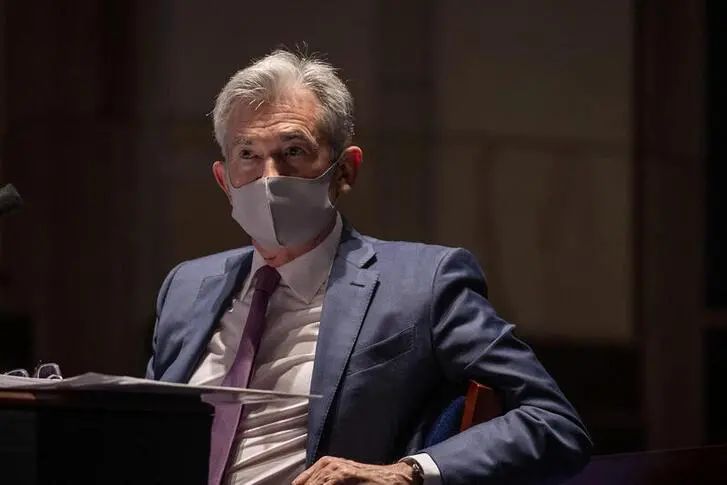PHOTO
WASHINGTON- Federal Reserve Chair Jerome Powell has ordered a sweeping review of the ethics rules governing financial holdings and dealings by senior officials at the U.S. central bank, a Fed spokesperson said on Thursday.
Powell ordered the review late last week, the spokesperson said in an emailed statement, following recent reports that two of the Fed system's 12 regional reserve bank presidents had been active investors during 2020, a notably volatile year for asset prices as the country battled the COVID-19 pandemic. Those revelations, originally reported by the Wall Street Journal, prompted senior U.S. lawmakers - including Senator Elizabeth Warren of Massachusetts - to demand more stringent restrictions on such activities.
"Because the trust of the American people is essential for the Federal Reserve to effectively carry out our important mission, Chair Powell late last week directed Board staff to take a fresh and comprehensive look at the ethics rules around permissible financial holdings and activities by senior Fed officials," the statement said.
The rules that guide personal financial practices for Fed officials are the same as those for other government agencies, the spokesperson said. Moreover, the Fed has supplemental rules that are stricter than those for Congress and other agencies that are specific to the work conducted by the Fed.
"This review will assist in identifying ways to further tighten those rules and standards. The Board will make changes, as appropriate, and any changes will be added to the Reserve Bank Code of Conduct," the statement said.
Following news reports on their trading last week, Dallas Fed President Robert Kaplan and Boston Fed President Eric Rosengren both said they would divest any holdings of individual stocks by Sept. 30 and put the proceeds into index funds or cash.
Still, while their investments were judged to have complied with Fed ethics rules, their activity drew a sharp reaction. The Fed in 2020 rolled out a massive effort to nurse the economy through the pandemic, with low interest rates and massive bond buying that stabilized financial markets and helped set the stage for a record surge of asset prices following a crash early in the crisis.
Some Fed officials hold extensive portfolios - Powell's net worth is in excess of $17 million and perhaps much higher, according to his latest ethics filings - but they are not as a rule active traders.
Fed rules explicitly prohibit trading around the time of Fed meetings and require securities to be held for at least 30 days.
But the broader language in the Fed's internal rules requires officials to avoid even the appearance of conflict or of using their position and access to market-moving information for personal gain.
For Powell, promoted to Fed chair in 2018 by former President Donald Trump and subsequently a target of Trump's ire for his management of Fed interest rate policy, the revelations come at a particularly awkward time.
His current term as chair ends in February, and President Joe Biden is in the midst of deciding whether to appoint him to a second four-year term.
Among those advocating for a change in Fed leadership, one of the chief arguments has been that Powell, a private equity lawyer, has not been strict enough in his approach to Wall Street.
He has also worked to build strong relationships among U.S. lawmakers and has preached the need for the unelected central bankers to be transparent in their actions and accept oversight by the country's elected officials.
(Reporting by Howard Schneider; Writing by Dan Burns; Editing by Chizu Nomiyama and Dan Grebler) ((Daniel.Burns@thomsonreuters.com;))





















